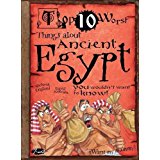
Teachers: with Earth Day approaching (April 22), you might be spending time going over the [now] 4 R’s with your class. Maybe you’re discussing environmental issues. With the pressure of addressing common core standards, it can be hard to fit in a unit on the environment. But I say, let’s take the topic and repurpose it (the latest R!): instead of the focus being solely on the environment, hide it in the literacy curriculum. Everyone has a cause that’s close to his or her heart…even fictional characters.
EARTH DAY LESSON PLAN
OBJECTIVE: Analyze main characters at a deeper level based on character traits in the book.
MATERIALS NEEDED:
- a book recently read (either read individually, within a guided reading group, or as a whole class)
- [optional] picture books addressing environmental issues (list at bottom of post)
PREPARATION: [Optional]
- Discuss ways we protect the environment. As a class, create and display a list of these environmental issues. (See the list at the bottom of the post.)
- Research/read about local environmental issues as well as ones in other areas of the world.
- Add to the list any new issues you’ve discovered.
LESSON: Discuss how fictional characters would protect the environment.
POSSIBLE QUESTIONS FOR DISCUSSION (click here for the pdf):
1. Based on what you know about the main character from details in the book, what environmental issue or issues would he or she support?
2. What details from the book make you draw this conclusion?
3. What would he or she do for this cause (what action might be taken)?
4. What obstacles might he or she face?
5. Think about the antagonist. Would he or she support the same cause? If not, what would his or her cause be?
6. How about any secondary characters? Would they support the same cause as the main character?
POSSIBLE PROJECT: Have students create a piece (short story, comic, essay, etc.) addressing the main character and his or her environmental cause.
SUPPLEMENTAL MATERIALS: Here are great picture books about people protecting the environment.
- One Plastic Bag: Isatou Ceesay and the Recycling Women of the Gambia by Miranda Paul (Millbrook Press)
- The Tree Lady: The True Story of How One Tree-Loving Woman Changed a City Forever by H. Joseph Hopkins (Beach Lane Books)
- Rachel Carson and Her Book That Changed the World by Laurie Lawlor (Holiday House)
- Planting the Trees of Kenya by Claire A. Nivola (Frances Foster Books)
- I am Jane Goodall by Brad Melter (Dial Books)
- The Watcher: Jane Goodall’s Life with the Chimps by Jeanette Winter (Schwartz & Wade)
- Out of School and Into Nature: The Anna Comstock Story by Suzanne Slade (Sleeping Bear Press)
- Magic Trash: A Story of Tyree Guyton and His Art by J. H. Shapiro (Charlesbridge)
- The Soda Bottle School: A True Story of Recycling, Teamwork, and One Crazy Idea by Seno Laura Kutner and Suzanne Slade (Tilbury House Publishers)
ENVIRONMENTAL ISSUES: Here are some issues to consider.
deforestation
global warming
land degradation
pollution (air, water, soil)
loss of biodiversity/endangered plant and animal species
habitat destruction
natural resource depletion
waste disposal
urban sprawl
STANDARDS ADDRESSED:
CCSS.ELA-LITERACY.RL.5.2
Determine a theme of a story, drama, or poem from details in the text, including how characters in a story or drama respond to challenges or how the speaker in a poem reflects upon a topic; summarize the text.
CCSS.ELA-LITERACY.RL.5.6
Describe how a narrator’s or speaker’s point of view influences how events are described.
CCSS.ELA-LITERACY.SL.5.1
Engage effectively in a range of collaborative discussions (one-on-one, in groups, and teacher-led) with diverse partners on grade 5 topics and texts, building on others’ ideas and expressing their own clearly.





 Sometimes while authors are researching books, they run across strange and interesting facts. Some of these discoveries make it into the book, but others don’t. Editors may decide certain facts shouldn’t be included. Other times there isn’t enough room to include them all.
Sometimes while authors are researching books, they run across strange and interesting facts. Some of these discoveries make it into the book, but others don’t. Editors may decide certain facts shouldn’t be included. Other times there isn’t enough room to include them all.
 For me, quirky information like that is what makes a subject come alive. A few books that provide unusual facts about Rome are Horrible Jobs in Ancient Greece and Rome by Robyn Handyman, The Totally Gross History of Ancient Rome by Jeremy Klar, and Top 10 Worst Things about Ancient Rome You Wouldn’t Want to Know! by Victoria England and David Antram. Other books in these series cover different countries.
For me, quirky information like that is what makes a subject come alive. A few books that provide unusual facts about Rome are Horrible Jobs in Ancient Greece and Rome by Robyn Handyman, The Totally Gross History of Ancient Rome by Jeremy Klar, and Top 10 Worst Things about Ancient Rome You Wouldn’t Want to Know! by Victoria England and David Antram. Other books in these series cover different countries.